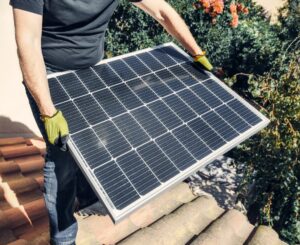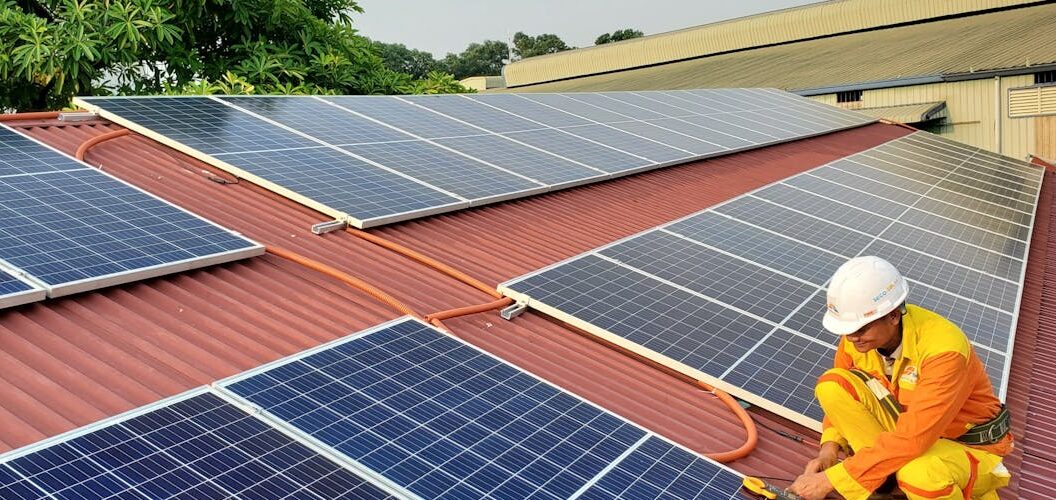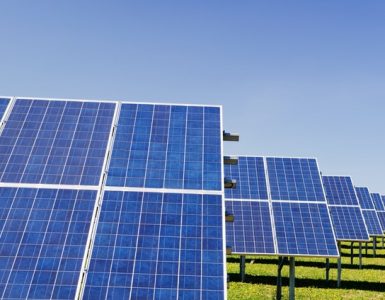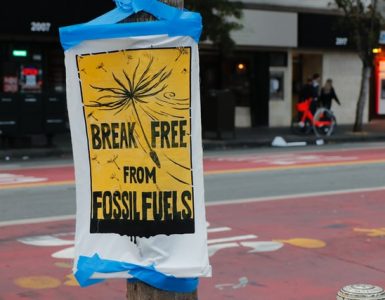The 3rd edition of the World Solar Report series was released at the 7th Assembly of the International Solar Alliance focusing on global solar growth, investment trends, and technological advancements.
The newly launched 4 reports namely World Solar Market Report, World Investment Report, World Technology Report, and Green Hydrogen Readiness Assessment for African Countries each highlight a crucial area in the global shift towards sustainable energy.

The World Solar Market Report reveals exceptional solar growth, with global capacity soaring from 1.22 GW in 2000 to 1,418.97 GW in 2023.
In just two decades, global solar capacity has shown a staggering 40% annual growth rate. In 2023 alone, 345.83 GW of solar power was added, accounting for three-quarters of all new renewable capacity worldwide.
The clean energy industry now fuels 16.2 million jobs, with solar leading the charge at 7.1 million—up 44% from 2022’s 4.9 million with 86% of these jobs concentrated in just 10 countries.
This rapid growth is fuelled by record-breaking investments. The World Investment Report reveals global clean energy investment is set to leap from $1.2 trillion in 2018 to $2 trillion by 2024 with investments in solar represented ~ 59% (USD 393 billion) of all renewable energy investments (USD 673 billion).
APAC is at the forefront of solar investments pouring USD 223 billion into solar in 2023 followed by EMEA with USD 91 billion in 2023 and AMER region with solar investments of USD 78 billion.
These investments are not only adding new capacity but are also driving down the cost of energy from solar worldwide. Today solar power has become the most affordable source of electricity in many regions, even surpassing coal and gas.
This cost-effectiveness is fuelling a global surge in solar ambitions, with several countries emerging as frontrunners in the field. Countries like the United States with more than 130 GW of installed solar capacity, and regions like the European Union (Germany and Spain collectively contribute over 250 GW of solar capacity) are also making good progress.
The World Technology Report highlights the rapid progress being made in the field of solar technology. Solar PV monocrystalline modules have hit a new high with a record-breaking 24.9% efficiency
At the Seventh General Assembly of the International Solar Alliance (ISA) held in New Delhi from November 3 to 6, 2024, apart from the World Solar Report, several significant initiatives, programs, and funding schemes aimed at supporting solar energy projects and fostering global cooperation were presented and discussed.
One of the innovative flagship initiatives of ISA in 2024 has been the launch of the Solar Data Portal. The platform delivers real-time data on solar resources, project performance, and investment opportunities across countries. It provides transparent and actionable insights, thereby transforming how governments, investors, and developers engage with solar projects.
Another flagship initiative of ISA is the establishment of the Global Solar Facility which aims to unlock commercial capital for solar projects in underserved regions, especially in Africa. A pilot project is already underway in the Democratic Republic of Congo.
In addition, the SolarX Startup Challenge has successfully identified and supported innovative, scalable solutions for the solar sector. In September 2024, 30 winners from the Asia and Pacific edition were announced, and preparations are underway to host the 3rd Edition of the challenge for the Latin America and the Caribbean region.
Besides these initiatives, ISA continues to expand knowledge-sharing through its monthly ISA Knowledge Series and World Solar Reports. The Green Hydrogen Innovation Centre, launched at the G20 Ministerial, is exploring synergies between solar energy and hydrogen.
ISA is also fostering global collaboration on solar solutions by organising global events like the International Solar Festival and the CEO Caucus.
About International Solar Alliance (ISA)
The International Solar Alliance (ISA) is a global initiative launched in 2015 by India and France at the COP21 summit in Paris to promote solar energy as a sustainable solution for energy access and combat climate change.
With the signing and ratification of the ISA Framework Agreement by 15 countries on 6 December 2017, ISA became the first international intergovernmental organisation to be headquartered in India.
The founding conference of ISA was held on March 11, 2018, in India marking a significant step in mobilizing international efforts toward solar growth and deployment.
With 120 Member and Signatory Countries, the International Solar Alliance plays a key role in advancing global solar cooperation, enhancing energy security, and supporting the transition to cleaner energy systems.
The ISA aims to achieve the Sustainable Development Goals, especially in the areas of affordable and clean energy (SDG 7) and climate action (SDG 13).
Initially focused on developing countries, the ISA’s Framework Agreement was amended in 2020 to allow all United Nations member states to join, further broadening its reach and reinforcing the global nature of the alliance.
ISA partners with multilateral development banks, development financial institutions, private and public sector organisations, civil society, and other international institutions to deploy cost-effective and transformational solutions through solar energy, especially in the least Developed Countries and the Small Island Developing States.
The Assembly meets annually at the ISA’s headquarters to assess the impact of programs and activities on solar energy deployment, performance, reliability, cost, and financing scale.
The International Solar Alliance aims to unlock US$1 trillion in solar investments by 2030 through its ‘Towards 1000’ strategy, focusing on reducing both technology and financing costs. This ambitious plan aims to provide energy access to 1 billion people and install 1,000 GW of solar energy capacity. Achieving these targets would significantly mitigate global carbon emissions, reducing 1,000 million tonnes of CO2 annually.






Add comment